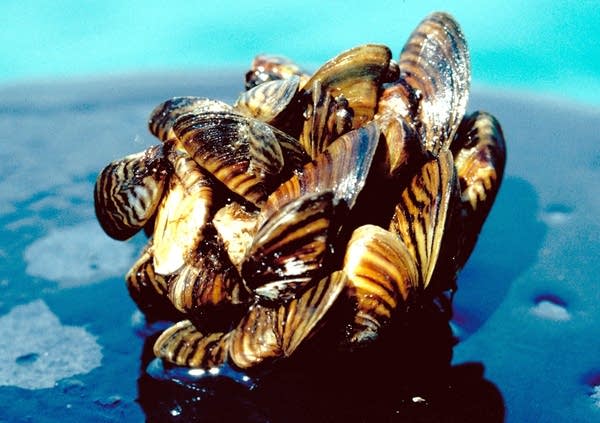Legacy zebra mussel research proposal meets turbulence
Go Deeper.
Create an account or log in to save stories.
Like this?
Thanks for liking this story! We have added it to a list of your favorite stories.

Members of the council charged with distributing Legacy Amendment funds for the outdoors disagreed on Thursday whether a proposal to research bacteria that can kill zebra mussels should be considered for funding.
The Douglas County Lakes Association asked the Lessard Sams Outdoor Heritage Council for $350,000 to research the possibility that a product called Zequanox, made of a dead form of a soil bacteria, could be used in a lake setting to control zebra mussels, an invasive species. Zebra mussels have taken over in dozens of lakes and rivers in Minnesota.
Several members of the council said it wouldn't be appropriate to use Legacy money to fund research.
"Our constitutional mandate is to fund on-the-ground projects that are going to accomplish things. Research is not part of that," said David Hartwell, the council's chairman.
Turn Up Your Support
MPR News helps you turn down the noise and build shared understanding. Turn up your support for this public resource and keep trusted journalism accessible to all.
Other members suggested the company that's trying to bring Zequanox to market, Marrone Bio Innovations, find private investors to finance the research.
"Basically what this is is a $300,000 investment in a private company, who if they make a zillion dollars off of it at the end of the day, isn't going to return any portion of that to the Outdoor Heritage Fund," member Scott Rall said.
Bonnie Huettl, president of the Douglas County Lakes Association, said Marrone Bio is focusing its efforts on water intake pipes for now.

"They have not yet done the research to do what they call open water, in lakes. That's what I'm pushing. They will get around to it, but we don't know when," she said.
Huettl was hopeful after other members of the council said Zequanox is promising enough that it deserves consideration.
"It's not a lot of money but I think it should be considered," said Sen. Bill Ingebrigtsen, R-Alexandria, who also chairs the Senate committee that oversees Legacy appropriations. "We should look at this as at least a starting place."
"This testing should happen, and if it's not us, who's it going to be?" asked Ron Schara, another member of the council.
Other members suggested that the project fits more within the Legislative Citizen Commission on Minnesota Resources, which decides how to distribute proceeds from the Minnesota Lottery.
During Wednesday and Thursday's hearings, the Lessard Sams Outdoor Heritage Council learned about some 40 different outdoors projects. During its Sept. 20 meeting, the council will decide how to spend up to $96 million next year to protect, restore and enhance the state's prairies, wetlands and forests.




